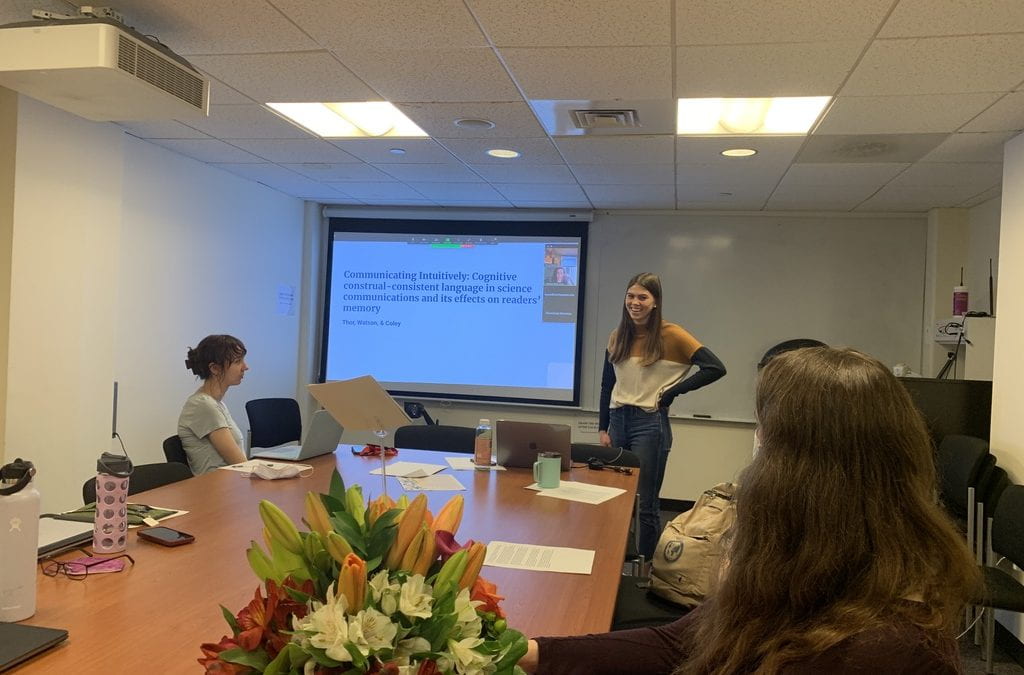Kyleigh Leads Lab Meeting on Intuitive Language in Science Classroom
Apr 6, 2022 | Uncategorized |

At last week’s lab meeting, one of our senior undergraduate research assistants, Kyleigh Watson, led a discussion on intuitive language in the science classroom. The lab engaged in an activity testing our ability to remember information from science articles to think about how the presence of cognitive-construal language (teleology, anthropocentrism, or essentialism) may impact learning and memory.
This idea is based on past CORE lab research, led by Nicole Betz, which has found that in the undergraduate biology classroom setting, instructors regularly use all three types of construal language. The effects of this on understanding of the concepts or development of misconceptions are yet to be fully understood.
Kyleigh’s research project, which she shared with the entire lab, has focused on analyzing the presence of cognitive-construal language in science articles. Using a variety of search engines, her and her team have compared the presence of this language in articles written for the general public, for those who are science-interested, and for the scholarly population. They have found that articles intended for the public or science-interested have higher levels of cognitive-construal language.
The team hypothesizes that this language may be used to make information more understandable or relatable for those who are unfamiliar with the subject. It is not yet clear how the presence of such language impacts people’s misconceptions on the subject. We are excited to see how Kyleigh and her team continue to expand on this project and investigate the implications of the findings!
They have found that articles intended for the general public have higher levels of cognitive-construal language than scholarly articles.
